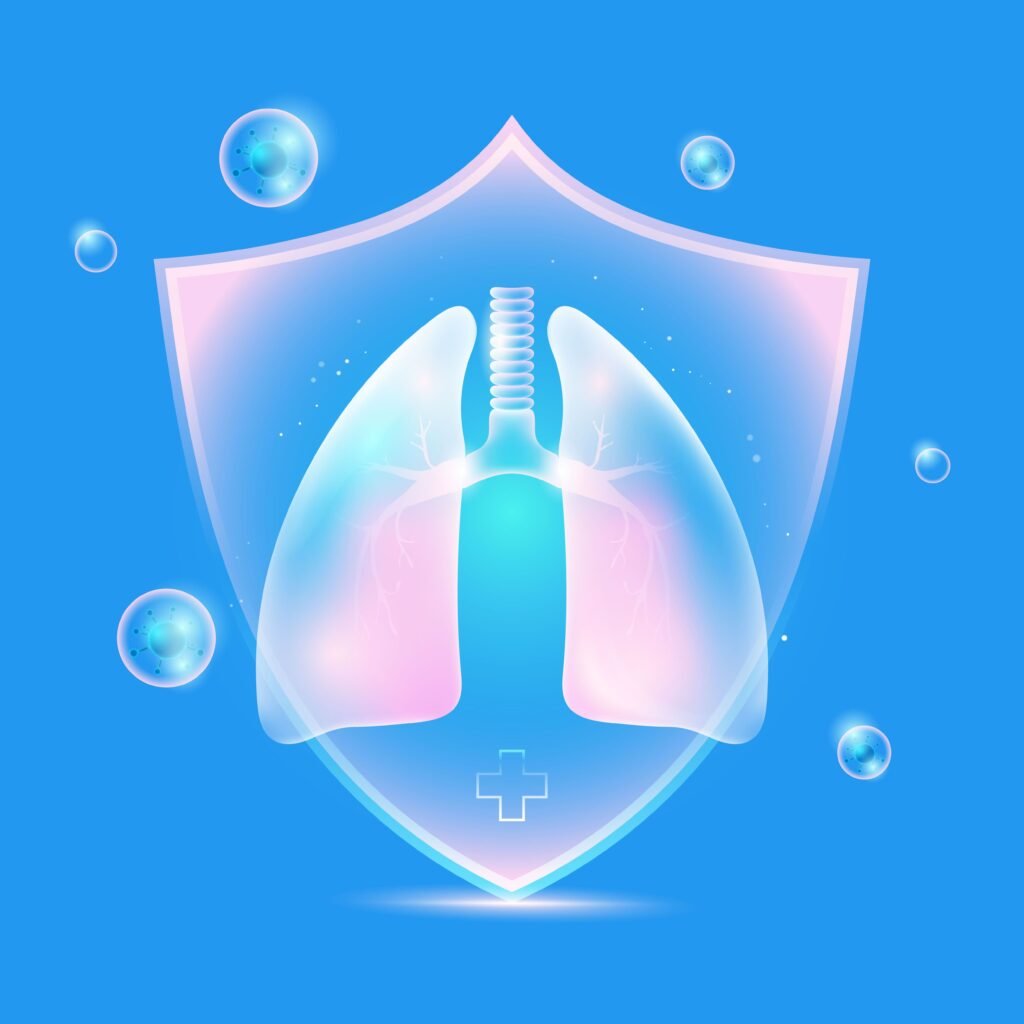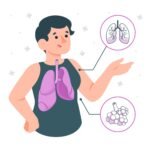Ways to Keep Your Respiratory System Healthy – Amidst the onslaught of the Covid-19 pandemic, which can cause respiratory disturbances, the obligation to maintain the health of the organs in this system is increasingly felt.
Especially since there is currently no available medicine or vaccine to combat the disease. By taking various measures to maintain respiratory organs, we are playing a role in preventing the spread of the rampant coronavirus.
Remember, the respiratory organs are not just the lungs. The mouth, nose, and throat are also included. Therefore, prevention needs to be done comprehensively.
10+ Ways to Maintain Respiratory Organs
Don’t immediately think of complicated ways to keep the respiratory organs healthy. It turns out that various steps below can be taken to achieve this:
1. Regular Exercise
Regular exercise is a highly effective way to maintain respiratory organs. Active movement promotes smooth circulation in the body, ensuring the health of the respiratory organs, especially the lungs.
2. Consuming Nutritious Foods
Consuming nutritious foods also greatly influences the health of the respiratory organs. Individuals lacking in nutrients are proven to be more susceptible to various respiratory disturbances. Some important vitamins and minerals for maintaining respiratory organs include:
- Vitamin A
- Vitamin C
- Vitamin E
- Zinc
- Potassium
- Selenium
- Magnesium
3. Drinking Plenty of Water
Drinking plenty of water is one of the simplest ways to maintain respiratory organs. Adequate hydration helps dissolve mucus or phlegm that accumulates in the respiratory tract daily, preventing blockages or respiratory symptoms.
4. Regular Handwashing
You probably already understand that regular handwashing can provide immense benefits to respiratory organ health, especially during disease outbreaks. Not only Covid-19, but other respiratory diseases such as the flu can also be prevented if we regularly clean our hands.
5. Quitting Smoking
The most common habit that causes damage to respiratory organs is smoking. Therefore, one of the most effective ways to maintain respiratory organs is by quitting smoking.
6. Avoiding Pollution Exposure
Continuous exposure to pollution can disrupt respiratory organs, especially the lungs. Remember, pollution is not just vehicle exhaust. Cigarette smoke, factory smoke, and chemicals released into the air can also damage the respiratory system.
7. Making Home a Green Area
Maintaining many plants at home will make the air fresher. Plants help increase oxygen production in the air and filter out pollutants and toxins around us.
8. Getting Vaccinated
While there is currently no vaccine for Covid-19, respiratory diseases are not limited to it. Other respiratory diseases such as influenza, pneumonia, and tuberculosis can be effectively prevented if we receive vaccines.
9. Don’t Smoke
Smoking is a leading cause of lung cancer and chronic obstructive pulmonary disease (COPD), which includes chronic bronchitis and emphysema. Cigarette smoke can narrow the air passages and make breathing more difficult.
This causes chronic inflammation, or swelling in the lungs, which can lead to chronic bronchitis. Over time, cigarette smoke destroys lung tissue and can trigger changes that grow into cancer.
10. Preventing Infections
Colds or other respiratory infections can sometimes be very serious. There are several ways to keep the respiratory organs healthy, namely:
- Regularly washing hands or using hand sanitizer.
- Maintaining good oral and nasal hygiene.
- Get necessary vaccinations.
- Do Cardiovascular Exercises
If you want to improve respiratory health, include cardiovascular exercises in your workout routine. These exercises will not only help improve the respiratory system, but also keep the body fit.
11. Protect Yourself from Air Pollution
Air pollution will definitely pose a danger to respiratory organ health. Although wearing a mask is quite effective in warding off outdoor air pollution, it is important to remain vigilant against the air inhaled every day.
Some things that can be done to minimize air pollution are disposing of waste properly, conserving energy at home, and using environmentally friendly products.
12. Undergoing Regular Health Checks
Lastly, a less commonly practiced way to maintain respiratory organs is to undergo regular medical check-ups. Many people only go to the doctor when they have complaints. However, regular health checks can help detect various respiratory diseases early, as some diseases in our respiratory system do not cause symptoms until they are severe.
Why We Must Keep Your Respiratory System Healthy?
1. Oxygen Exchange and Vitality
The respiratory system’s primary function is to exchange oxygen and carbon dioxide. When you inhale, your lungs absorb oxygen, which then enters your bloodstream and nourishes every cell in your body. Conversely, during exhalation, waste gases (such as carbon dioxide) are expelled. This process ensures that your tissues receive the necessary oxygen for energy production, vitality, and optimal functioning.
2. Speech and Olfactory Sensation
Beyond breathing, the respiratory system enables speech production. Your vocal cords, located in the larynx, vibrate to create sound, allowing communication. Additionally, the olfactory receptors in your nasal passages allow you to sense odors, enhancing your sensory experiences.
3. Airway Protection and Defense
The respiratory system acts as a defense mechanism. It filters out harmful particles, pathogens, and irritants present in the air. The intricate structures—such as the nasal passages, with their conchae and meatuses—warm, humidify, and cleanse incoming air. The pharynx, trachea, and bronchi play crucial roles in protecting against foreign invaders.
4. Efficient Gas Exchange
Within the lungs, the alveoli, tiny air sacs, facilitate the exchange of oxygen and carbon dioxide. Surrounding capillaries transport these gases to and from the bloodstream. Proper gas exchange maintains the delicate acid-base balance necessary for overall health.
5. Temperature Regulation
Sinuses, nestled between the bones in your head, help regulate the temperature of inhaled air. This ensures that the air is suitable for your body’s internal environment.
6. Moisturization and Comfort
The respiratory system moisturizes the air you breathe. It adjusts humidity levels, preventing dryness and irritation in your airways. Adequate moisture promotes comfort and efficient gas exchange.
7. Muscular Support for Breathing
Muscles like the diaphragm and the intercostal muscles power your lungs. They aid inhalation and exhalation, ensuring effective breathing. Regular exercise strengthens these muscles and enhances respiratory efficiency.
8. Waste Removal and Acid-Base Balance
Exhalation removes waste gases, including carbon dioxide, from your body. This process maintains the delicate balance between acidity and alkalinity, essential for overall health.
Conclusion
There are many ways to maintain respiratory organs, most of which are simple steps that are easy to follow. Therefore, do not neglect to pay attention to respiratory health and overall body health, especially in the midst of a pandemic like the present one.






